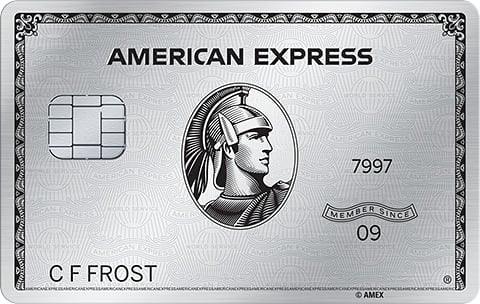Can My Credit Card Help Me Get a Refund on Canceled Trips?

Many, or all, of the products featured on this page are from our advertising partners who compensate us when you take certain actions on our website or click to take an action on their website. However, this does not influence our evaluations. Our opinions are our own. Here is a list of our partners and here's how we make money.
Whether you’ve booked your trip a year in advance or you just planned it a few weeks ago, sometimes life gets in the way. Maybe you have a family emergency, or you get a nasty ear infection right before you’re due to fly. And who could have predicted the coronavirus outbreak that brought virtually all travel to a screeching halt?
If you’re wondering if your travel credit card can help you get a refund on your canceled trip, the answer is maybe. There are many circumstances where a credit card would give you protection, but there are also many scenarios that won’t be covered.
Here’s what you can do if you’re faced with nonrefundable charges for a trip you can’t take.
Check your card’s travel protection
The American Express Platinum Card® and the Chase Sapphire Reserve®, like some other cards, offer varying levels of trip cancellation insurance that’s designed to protect you for some unforeseen circumstances like:
- Sickness, accident or injury that affects either you or an immediate family member or traveling companion.
- Severe weather that affects the start or continuation of your trip (Note: if the severe weather is already a known event, like a declared hurricane, it may not be covered).
- Jury duty or court subpoena.
- Terrorist activity.
It’s important to note that the travel must have been booked on the credit card that offers travel protection. Simply holding the card but paying with a different one won’t help.
While that coverage can be very useful in some situations, it doesn’t cover everything. During the coronavirus crisis, for example, the credit card would likely only cover your trip cancellation if you or your traveling partner contracted the virus and were unable to travel. If you canceled your trip because you were afraid of getting sick, your credit card would probably not refund your trip.
Here are a few other things that most travel protection from credit cards explicitly will not cover:
- Change of plans or financial circumstances.
- Pre-existing conditions.
- Travel arrangements canceled or changed by a tour operator or any travel agency unless it is the result of severe weather or an organized strike affecting public transportation.
- Traveling against the advice of medical professionals.
If you have to cancel a nonrefundable trip, the first course of action is to check the benefits of your credit card. If your canceled trip is covered, you’ll need to file a written claim within 20 days of the event with Chase, or 60 days with American Express.
» Learn more: 9 credit cards that provide travel insurance
Know your rights with flights
There are times when you’re entitled to a refund on your canceled flight, but it may be hard to get if the airline insists on offering a voucher instead. If you’re having trouble getting the refund you’re due, your credit card company may be able to step in and help.
According to the Department of Transportation, passengers are due a refund if their flight is canceled. Even if the airline offers to put you on a different flight instead, if you choose not to travel, you are entitled to a refund. Sometimes airlines will offer vouchers in place of a refund, but you don’t have to settle for a voucher if it doesn’t make sense for you.
» Learn more: What to do if an airline changes or cancels your flight
Even if your flight is changed instead of canceled, you still may be eligible for a refund. This rule is a bit more vague. According to the Transportation Department, you’re entitled to a refund if the airline has made a “significant schedule change and/or significantly delays a flight.”
The problem is that the DOT has not explicitly defined what “significant” means. In general, if your flight is changed by many hours, or changed from a nonstop to one with multiple connections, you have a good case for getting a refund.
First, pursue a refund directly with the airline. If you’re not making progress or it's flat-out refusing a refund, you can consider disputing the charge with your credit card. Make sure you can show that you’ve made good faith attempts to resolve this directly with the airline.
How to refund a nonrefundable airline ticket
Using a credit card dispute for a nonrefundable airline ticket should be your last resort after exhausting all other possibilities. Under the Fair Credit Billing Act, credit card chargebacks give consumers a way to recoup costs when a merchant doesn't deliver the product promised at the point of purchase.
As noted above, you're going to need to show that you've made a good faith effort to resolve the issue with the airline first. A successful chargeback often hinges on documentation.
Save screenshots and relevant emails documenting both the reason your flight ran into issues and the airline's response to your refund request. It can be difficult to document the content of phone calls, so it would help to stick to email and customer service chat services when pursuing a refund directly from the airline.
So what happens if you dispute an airline charge? That will depend on the airline's willingness to play ball. Chargebacks can be long and drawn out, so be ready to remain persistent. It's in the airline's best interests not to approve a chargeback, so even if your credit card company is willing to process the chargeback, you may still face pushback from the airline.
Merchants are free to appeal chargebacks and, ultimately, arbitration may be necessary if the airline refuses to cooperate.
The bottom line
There are many cases when your credit card can help you get a refund on your canceled trip. Next time you book travel, make sure you use a credit card that provides travel protection. Or, explore adding extra travel insurance to your trip to guard against other scenarios that your credit card won’t cover.
To view rates and fees of the American Express Platinum Card®, see this page.
Insurance Benefit: Trip Cancellation and Interruption Insurance
- The maximum benefit amount for Trip Cancellation and Interruption Insurance is $10,000 per Covered Trip and $20,000 per Eligible Card per 12 consecutive month period.
- Eligibility and Benefit level varies by Card. Terms, Conditions and Limitations Apply.
- Please visit americanexpress.com/benefitsguide for more details.
- Underwritten by New Hampshire Insurance Company, an AIG Company.
How to maximize your rewards
You want a travel credit card that prioritizes what’s important to you. Here are some of the best travel credit cards of 2026:
- Flexibility, point transfers and a large bonus: Chase Sapphire Preferred® Card
- No annual fee: Wells Fargo Autograph® Card
- Flat-rate travel rewards: Capital One Venture Rewards Credit Card
- Bonus travel rewards and high-end perks: Chase Sapphire Reserve®
- Luxury perks: American Express Platinum Card®
- Business travelers: Ink Business Preferred® Credit Card
Planning a trip? Check out these articles for more inspiration and advice:
Find the best travel credit card for you
Snag these hotel loyalty perks, even if you’re disloyal
Earn more points and miles with these 6 strategies
Find the best travel credit card for you
Snag these hotel loyalty perks, even if you’re disloyal
Earn more points and miles with these 6 strategies
Article sources
NerdWallet writers are subject matter authorities who use primary,
trustworthy sources to inform their work, including peer-reviewed
studies, government websites, academic research and interviews with
industry experts. All content is fact-checked for accuracy, timeliness
and relevance. You can learn more about NerdWallet's high
standards for journalism by reading our
editorial guidelines.
Cards for Travel Insurance from our Partners
Chase Sapphire Reserve®
Rewards rate 1x-8x Points
Intro offer 125,000 Points
Chase Sapphire Preferred® Card
Rewards rate 1x-5x Points
Intro offer 75,000 Points
Southwest Rapid Rewards® Plus Credit Card
Rewards rate 1x-2x Points
Intro offer 50,000 Points
More like this







